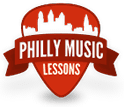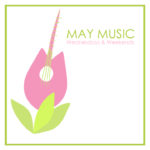Developing a Practice Routine
“Doing is the essential of learning. The doer is the learner.” -Ray Josephs
It can be difficult in this busy world to find the time to practice your instrument. But, the fact of the matter is, practicing regularly is what develops your ability to express yourself easily on your instrument. There are 3 main questions to address surrounding practice routines:
- What should I practice?
- How often should I practice?
- What is the difference between “practicing” and just playing whatever I like for 90 minutes a day?
1. What to practice
Curiosity, Not Cramming
Students should practice areas of playing that need improvement as well as unexplored ideas. They should be strengthening skills and learning new ones. Try new ideas that are just out of reach, yet avoid practicing ideas that are too difficult (or the result may be disappointing). Your teacher can help you determine difficulty level if you aren’t sure.
Practice should be engaging and fun. It should not feel like a chore or a cram session for a final exam. After you and your teacher discuss goals, your teacher can prescribe appropriate exercises. Once you reach a certain level of comfort playing these exercises, your curiosity may kick in. You may wonder what other possibilities exist – Now is the time to feed that curiosity with some fun challenges. A curious mind is an open mind, and an open mind is always learning.
Theme and Variation
An exciting way to get more mileage from an exercise is through “theme and variation”. Theme and variation works by disguising a main idea in new and clever ways. For example, say the theme is C harmonic Minor. Students can try changing the way they practice this scale by varying the rhythm. Play the scale as 8th notes, triplets, 16th notes, 32nd notes, etc. Try shuffling or swinging the rhythm for a different feel. Try changing the time signature or adding interesting rests or moments of silence. Perhaps instead of playing the scale in a step-wise motion, vary the pattern of intervals in 3rds, 4ths etc. Let’s say you are learning a 6 stroke roll on drums – write the idea out in a dozen variations. This way, you can achieve the fundamental goal of repetition while exploring how each example has a unique sound and feel. Theme and variation is exciting and can make practicing something students look forward to. It is a great way to ensure natural progress, since variation is still related to a single theme or idea. Be sure to ask your teacher about incorporating “theme and variation” at your next lesson.
2. How often should I practice?
Students (adults and teens) should reserve at least an hour each day for music (5-15 minutes for very young kids). This is the minimum if you would like to see noticeable improvement. If you don’t have that time, a little bit every day is still better than one or two big chunks once or twice a week. If you’re dedicated, and have 2-4 hours, even better!
3. How to Practice and Progress: Play, Focus, & Self Discovery
To begin practicing, students should start by playing freely – but don’t get carried away! I recommend playing freely for the first 5-10 minutes. Try to manage your allotted time by dividing your practice routine into different segments or areas of study. For example:
- Free Play
- Technique
- Scales
- A New Song
- Etc.
The Value of Self-Teaching Through Free Play
I have studied music from grade school through college, but also consider myself to be self taught in many ways. I recall playing freely when I was younger and noticing an interesting rhythm. No one had taught this rhythm to me – I had stumbled upon it. I knew immediately that I liked how it sounded, yet I also knew there was room for improvement. As there was still a disconnect between what I imagined in my mind head and what I heard from my drums, I played it over and over again. I played it slow to make sure my muscle memory was learning the correct motions. I played it fast to make sure I had control of speed and direction. Practicing an idea found through one’s own explorations, and then improving upon it through repetition, is another useful practice technique.
Another way to play/practice with self-guidance is to listen to your favorite songs. Try to figure out your part. This is a great way to develop your ear and also the layout of your instrument. Be sure to share with your teacher what you have figured out. Perhaps you missed a couple notes or the chord voicing was wrong. They will be glad to help you.
Finding a Balance Between Fun and Progress During Practice
Students need influence and guidance from others, but also need to develop their own truths, opinions, and curiosities about music. The key difference between playing whatever you want for 90 minutes and playing during a practice session is the focus on progress. Practice requires you to be aware of your shortcomings and to take a moment to figure out solutions. These moments can be discussed with your teacher. They want to know what you’ve been working on. Explain to them what you’ve been doing on your instrument – whether it’s an assignment or your own pursuit, your teacher wants to help you improve your skills.
Music is scientific in many ways, but it is still an art. No matter what it is you are trying to convey, it is all made possible when you are comfortable on your instrument. There are two solid paths to developing an understanding of your instrument (I find that it is a healthy balance of these two paths that will help you become well rounded). Remember to practice exercises assigned by your teacher on a regular basis (focused progress), and also save time to just play, experiment and enjoy yourself (curiosity and exploration).

